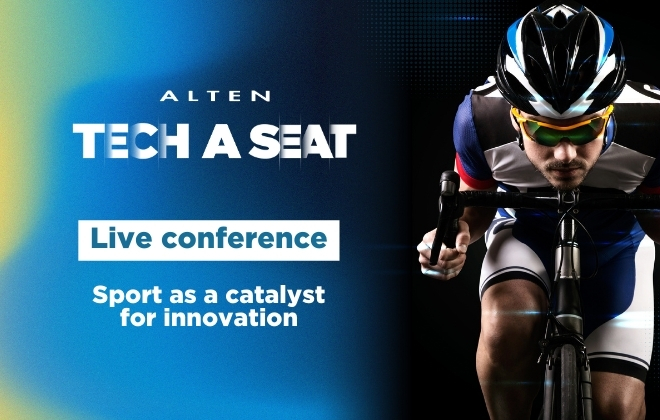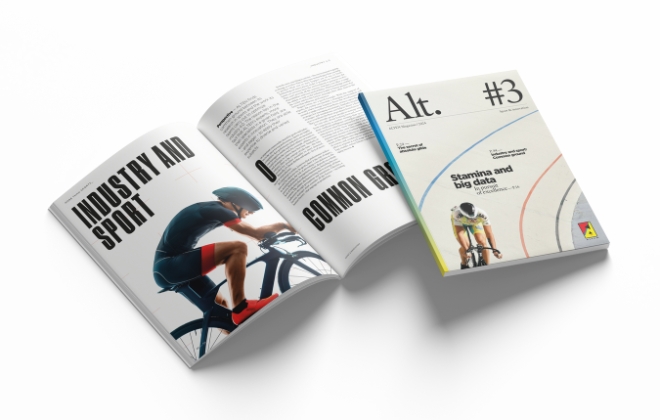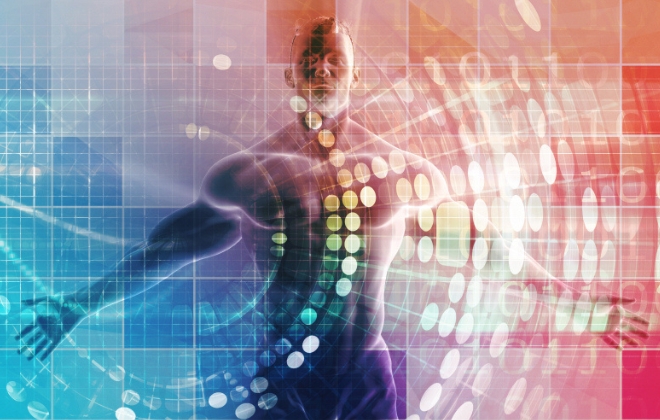AI – A world of experience

From banking and insurance to health and retail, AI has become integral to a wide range of industries. Its application in sports is also evolving continually, as experts unleash its huge potential. From face recognition to marketing, the presence of AI in our daily lives is a reality that holds promise, and at the same time requires careful vigilance.
ALTEN’s SDG Group is a leader in data, analytics and AI, helping people and companies in more than 20 countries worldwide to unleash their full potential. Data experts at SDG explore the vast realm of AI applications in industry and in sports. The use of AI as a tool in sports can be resumed into two important dimensions: processing data and enhancing analytics. “Wearable sensors – even sensors in racquets, balls, golf clubs – have been around for a while,” says
Antonio Torrado, Director at SDG. “They give us a lot of information about what is happening with an athlete, a game situation.” AI makes it possible to extract and process this valuable data, which can be leveraged in many ways.
“The revolution, explains Antonio, is that for the first time in the history of technology, we have the capability to process all the available information, not just the low-hanging fruit, like sensor data. We can analyze all the digital assets as complex as images or video footage.” This includes complex data such as background sounds, what is happening in the crowd, weather patterns, and other information that is much more subtle and diverse than what is captured by the sensors. “The only information that cannot be digitalized, yet,” he says, “despite its relevance, is what is going on in the mind of the player.”
Game changer
AI is also revolutionizing things like the verification of referee calls. The interruption in a game is minimized through the use of extremely fast and efficient AI models. Decisions can be quickly assessed on the spot and verdicts are much less controversial – and less disruptive. Another important role is in helping to prevent injury. An AI algorithm can be used to monitor athletes’ physical stress levels, allowing them to know how hard they can push without causing injury. “AI can warn athletes when they are reaching thresholds of physical stress,” says Antonio. “Likewise, it can help them to understand how different scenarios will play out without having to actually play. They can simulate how different effort scenarios will affect their heart, for example. This is a great application of AI, but it needs to be carefully used – not only for a season or even for a sporting career, but for a healthy person’s entire future.”
AI is also a valuable tool in fan engagement, enabling the delivery of personalized services that enhance the audience experience. “Sports is a major industry,” says Antonio. “It involves a wealth of economic transactions. Contextual and custom advertising has been around for some time, but AI widens the possibility of personalized advertising. There’s nothing stop- ping us from having dynamic advertising during a single event for each viewer on Earth.” Many media platforms are already using AI for live commentary and instantaneous summaries, augmenting the experience of watching sports with quantities of information that are carefully crafted into the commentary on a game.
AI infusion / human concerns
In addition to these potential benefits, the integration of AI into sports raises critical considerations of ethics, privacy, and fairness. The question comes down not only to what AI processes, but how. “AI infusion is about enhancing processes with AI,” says Antonio, “and we have been doing this for some time now, in many walks of life. But we need to be very responsible in the way we apply AI – we need to infuse Human into AI.” Personal data on health, for example, must be highly protected. It is also fundamental to safeguard equality by not skewing data in favor of one or another group, or not giving a competitive edge to those who can afford the technology over those who cannot. “The risks are particularly apparent with generative AI,” says Antonio. “But AI can also help us produce massive sets of synthetic data – data that does not represent any real person. These algorithms can then be trained to act in a way that is fair, that is safe.”
“No one said that algorithms are perfect,” insists Antonio. “Algorithms are factually expressed as pieces of software, therefore they are subject to error. That means that how AI is developed, how protections are built in, how it is monitored – all these elements become critical. But all this means responsible investment; and we need to avoid weakly engineered and unsafe AI systems.” Governments worldwide are taking steps to regulate the use of AI in various spheres, including sports. These regulations are meant to ensure that AI is used ethically, safely and responsibly.
Trustworthy AI
ALTEN and SDG place great emphasis on trustworthy AI, characterized by transparency, fairness, accountability, accuracy, and resilience against evolving cyber threats. They view trust as a key competitive factor in AI solutions, not only to comply with regulatory standards, but also to ensure a culture of trust and ethical responsibility as the basis for innovation.





















